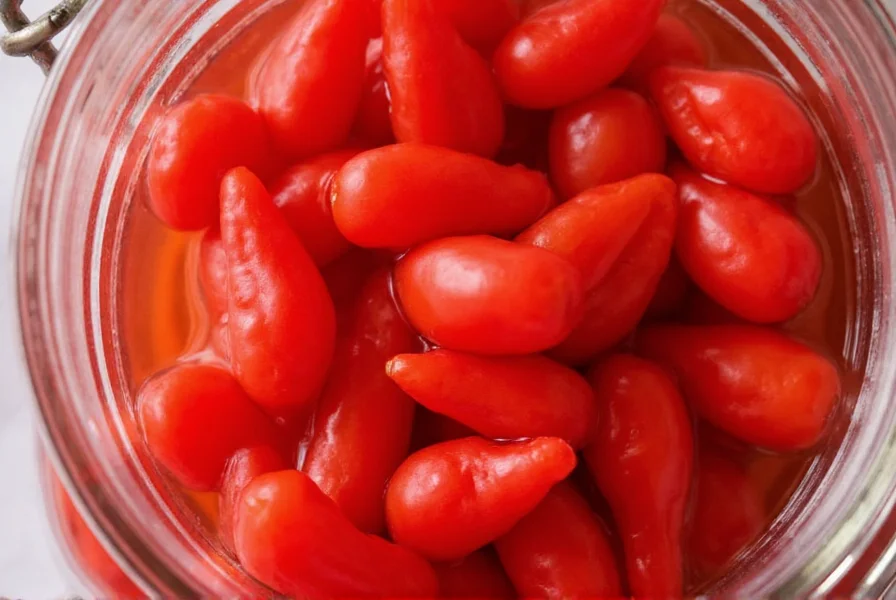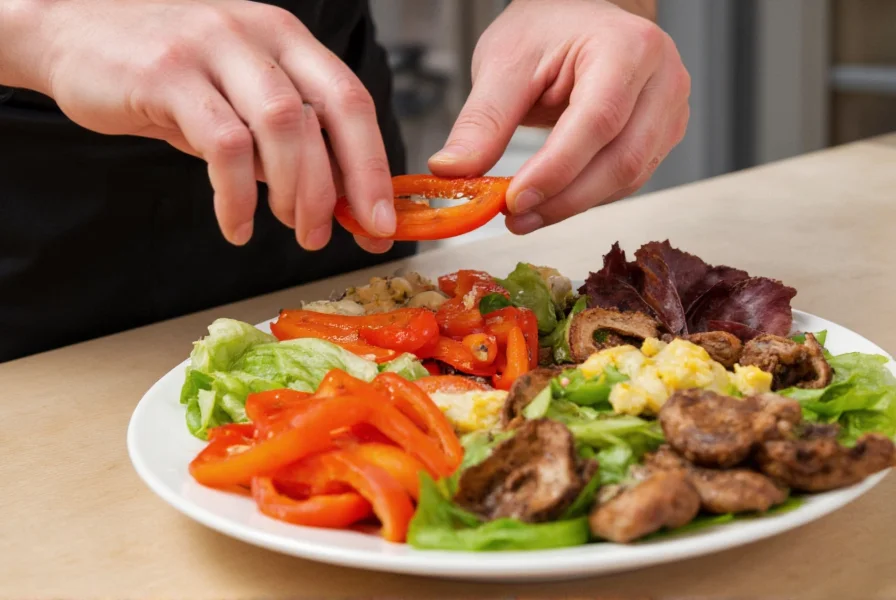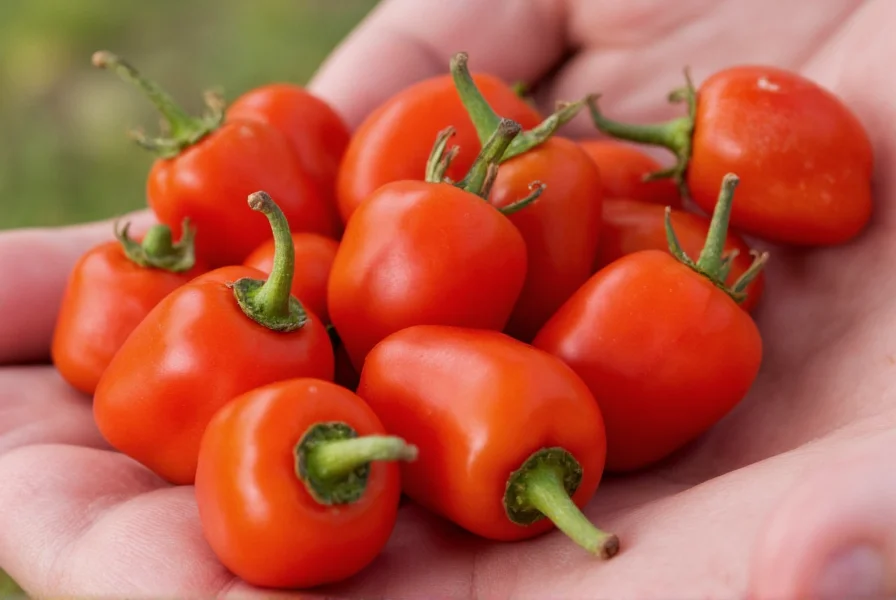These vibrant red gems have become increasingly popular in gourmet cooking and everyday recipes worldwide. Unlike regular jalapeños or banana peppers, peppadews offer a perfectly balanced flavor experience that works equally well in appetizers, salads, sandwiches, and sophisticated dishes.
Origin and Development of Peppadew Peppers
Despite their exotic flavor, peppadew peppers have a specific geographic origin. They were developed in 1992 by South African farmer Johan Steenkamp in the northeastern region near Letsitele. The name "Peppadew" combines "pepper" and "dew" to suggest their sweet, refreshing quality.
What makes authentic peppadew peppers special is their Protected Designation of Origin (PDO) status within the European Union. True peppadews must come from designated growing regions in South Africa's Limpopo province, where specific soil and climate conditions contribute to their distinctive characteristics.
| Nutrient | Amount | % Daily Value |
|---|---|---|
| Calories | 25 kcal | 1% |
| Vitamin C | 120 mg | 133% |
| Vitamin A | 1,800 IU | 36% |
| Fiber | 2.5 g | 10% |
| Potassium | 280 mg | 8% |
Flavor Profile and Characteristics
Understanding the peppadew pepper taste profile is essential for proper culinary application. These peppers measure between 500-1,000 Scoville heat units—significantly milder than jalapeños (2,500-8,000 SHU) but with more complexity than bell peppers (0 SHU).
Their distinctive flavor combines:
- Sweetness from natural sugars (similar to cherry tomatoes)
- Tangy acidity from the pickling brine
- Subtle fruitiness with berry-like notes
- Mild, building heat that never overwhelms
When selecting peppadews, look for firm, uniformly colored peppers with no wrinkles or soft spots. The best quality peppadews maintain their bright red color and slightly crisp texture even after pickling.

Culinary Applications for Peppadew Peppers
Learning how to use peppadew peppers in cooking opens numerous culinary possibilities. Their balanced flavor makes them incredibly versatile across various dishes:
Appetizers and Snacks
Stuff peppadews with goat cheese or cream cheese for an elegant appetizer. They also work beautifully in tapenade, mixed with olives and capers. For a quick snack, simply drain and serve with crackers or bread.
Main Dishes
Chop peppadews and add to chicken salad for a flavor boost. They complement fish exceptionally well—try them on top of seared tuna or mixed into salmon patties. For pasta lovers, blend peppadews into a creamy sauce for a sweet-tangy twist.
Salads and Sides
Thinly slice peppadews and add to green salads for pops of flavor. They pair particularly well with arugula, feta cheese, and citrus vinaigrettes. For a unique side dish, mix chopped peppadews into coleslaw or potato salad.
Finding and Selecting Quality Peppadew Peppers
When searching where to buy peppadew peppers, check the international foods section of well-stocked grocery stores. Major chains like Whole Foods, Wegmans, and specialty food markets typically carry them. Online retailers also offer authentic South African peppadews shipped directly.
For the best quality, look for:
- Products labeled "Peppadew®" (the registered trademark)
- Jars with clear brine (cloudiness indicates age or poor quality)
- Peppers that maintain their firm texture
- Ingredients listing only peppers, vinegar, sugar, and salt
Peppadew Pepper Substitutes
If you're wondering about peppadew pepper substitutes, several options exist depending on what aspect you're trying to replicate:
- For sweet-tangy flavor: Roasted red peppers mixed with a touch of sugar and vinegar
- For appearance and mild heat: Pimientos or mild banana peppers
- For gourmet applications: A combination of roasted red peppers and capers
However, nothing perfectly replicates the unique peppadew flavor profile. If authentic peppadews are unavailable, consider ordering them online for special recipes where their distinctive taste is essential.
Storage and Shelf Life
Proper storage ensures you get the most from your peppadew peppers. Unopened jars maintain quality for 12-18 months in a cool, dark pantry. Once opened, transfer to an airtight container and refrigerate, ensuring peppers remain submerged in brine. Properly stored, they'll stay fresh for 2-3 months.
For longer storage, you can freeze peppadews (in their brine) for up to 6 months. Thaw in the refrigerator before using. Note that freezing may slightly soften their texture but preserves flavor well.

Health Benefits of Peppadew Peppers
Peppadew pepper nutritional benefits make them more than just a flavorful addition to meals. As members of the capsicum family, they contain capsaicin (in mild amounts) which offers several health advantages:
- Rich in vitamin C—boosting immune function and skin health
- Contain antioxidants that combat oxidative stress
- May support metabolism and fat burning
- Provide dietary fiber for digestive health
- Low calorie content makes them ideal for weight management
The pickling process preserves many nutrients while adding beneficial acetic acid from the vinegar, which may help regulate blood sugar levels.











 浙公网安备
33010002000092号
浙公网安备
33010002000092号 浙B2-20120091-4
浙B2-20120091-4